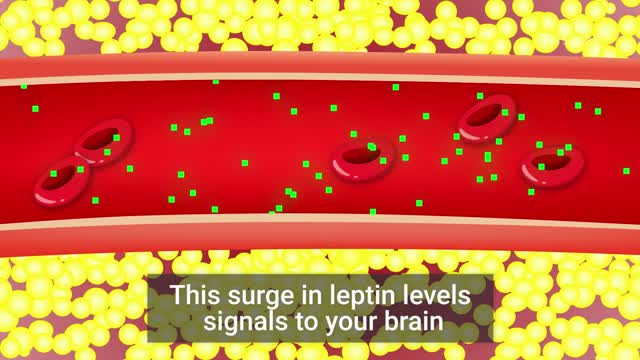Premium Only Content

What Losing Weight Does To Your Body And Brain | The Human Body
Special thanks to John Gunstad, professor with the Department of Psychological Sciences at Kent State University, for speaking with us about his cutting-edge research on how losing weight affects brain function.
Following is the transcript of the video:
Here’s what losing weight does to your body and brain.
During the first week, you may find it easy to lose weight by simply switching to a healthier diet. But as your metabolism adjusts, you won’t burn as many calories as you used to.
So losing additional weight will become harder.
Making matters worse, as the fat melts away, you’ll start to experience an increase in appetite. After a meal, fat cells release a hormone called leptin into the bloodstream.
This surge in leptin levels signals to your brain you’re full and should stop eating. But with less overall fat, people who lose weight show a measurable dip in leptin.
Brain scans of obese patients who had lost 10% of their body weight revealed that less leptin leads to increased activity in regions of the brain that control our desire to eat.
The result isn’t just an increased appetite but an even stronger urge to eat fatty, high-calorie foods, because your brain is trying to restore the body’s leptin levels to normal.
However, fighting that early impulse to gorge on pizza and donuts is worth it in the long run.
Besides the decreased risk of heart disease, hypertension, high cholesterol and type 2 diabetes, scientists studying overweight people discovered that losing just one pound of body weight reduces four pounds of pressure on knee joints.
Losing excess weight also reduces strain on the blood vessels, increases blood flow to the brain, and boosts overall brain function.
Several studies have shown that people who underwent weight-loss surgery saw an improvement in memory, concentration, and problem-solving skills in as soon as three months.
Plus, brain scans indicate that people who lost weight and kept it off for nine months reacted differently when shown images of high-calorie foods than before they lost the weight.
The brain regions that process reward, motivation, and taste didn’t react as strongly, whereas the areas that promote overall self-control had a boost in activity.
So fighting those cravings early on might make them easier to control later. Turns out — like anything else — losing weight can get easier with practice.
------------------------------------------------------► ►► https://bit.ly/2UT8QFY
-
 2:23
2:23
banooda12
4 years agoWhat Losing Weight Does To Your Body And Brain....2025
34 -
 5:02
5:02
WKBW
4 years agoThe Diet Center - Losing weight together
19 -
 5:30:52
5:30:52
SpartakusLIVE
11 hours agoDuos w/ @GloryJean || #1 Masculine Muscle MASS sears YOUR retinas with MIND BENDING content
227K3 -
 3:05:49
3:05:49
TimcastIRL
10 hours agoNew DOCS PROVE Obama Hillary CONSPIRACY To SABOTAGE Trump Admin | Timcast IRL
232K138 -
 2:29:36
2:29:36
Laura Loomer
10 hours agoEP136: YOU'RE FIRED! White House Vetting Crisis Continues
66.5K39 -
 8:07
8:07
MattMorseTV
10 hours ago $7.20 earnedTrump just LOWERED PRICES by 75 PERCENT.
40.6K39 -
 11:27:53
11:27:53
Misfit Electronic Gaming
13 hours ago $6.03 earned"LIVE" "Blind Descent' +"Dollhouse of Dead" Playtest 10 Followers till we hit 1000! We CAN do this!
43.8K -
 21:53
21:53
Glenn Greenwald
12 hours agoMichael Tracey on the Street: What Do People Think of the Epstein Case?
131K59 -
 2:26:28
2:26:28
megimu32
9 hours agoOTS: Board Games Gone Wild! The Loud, Weird & Chaotic Games That Raised Us
39.9K9 -
 4:25:16
4:25:16
DamnDanieI
10 hours agoKill First, Loot Later – OTG Live
57.1K1